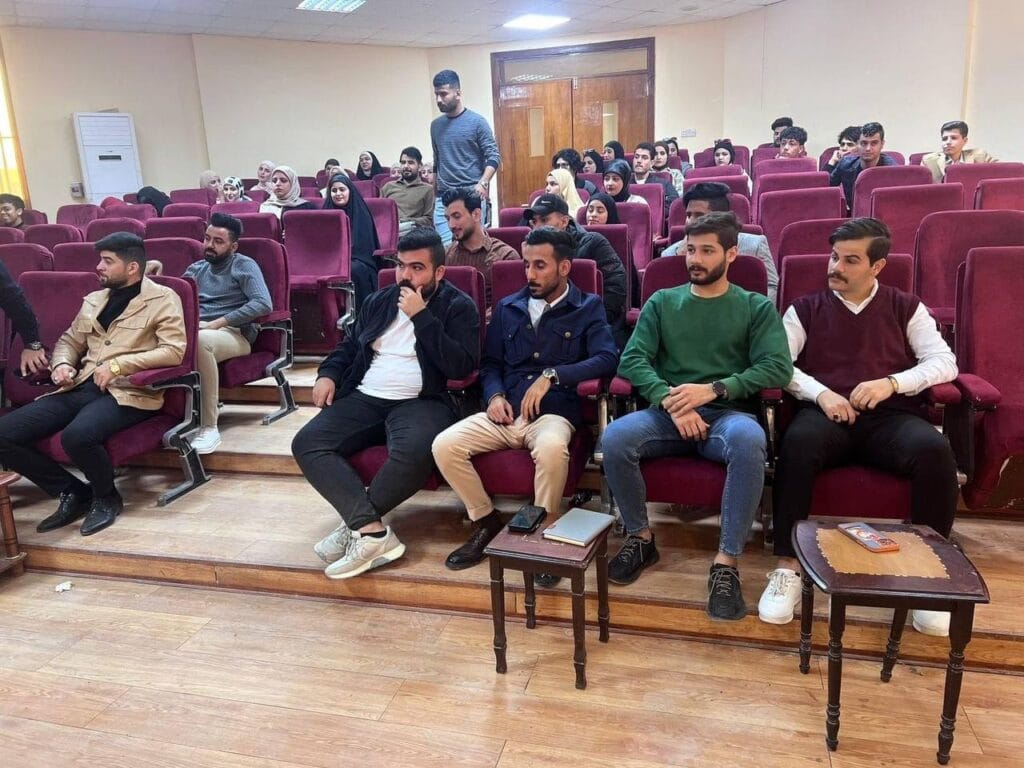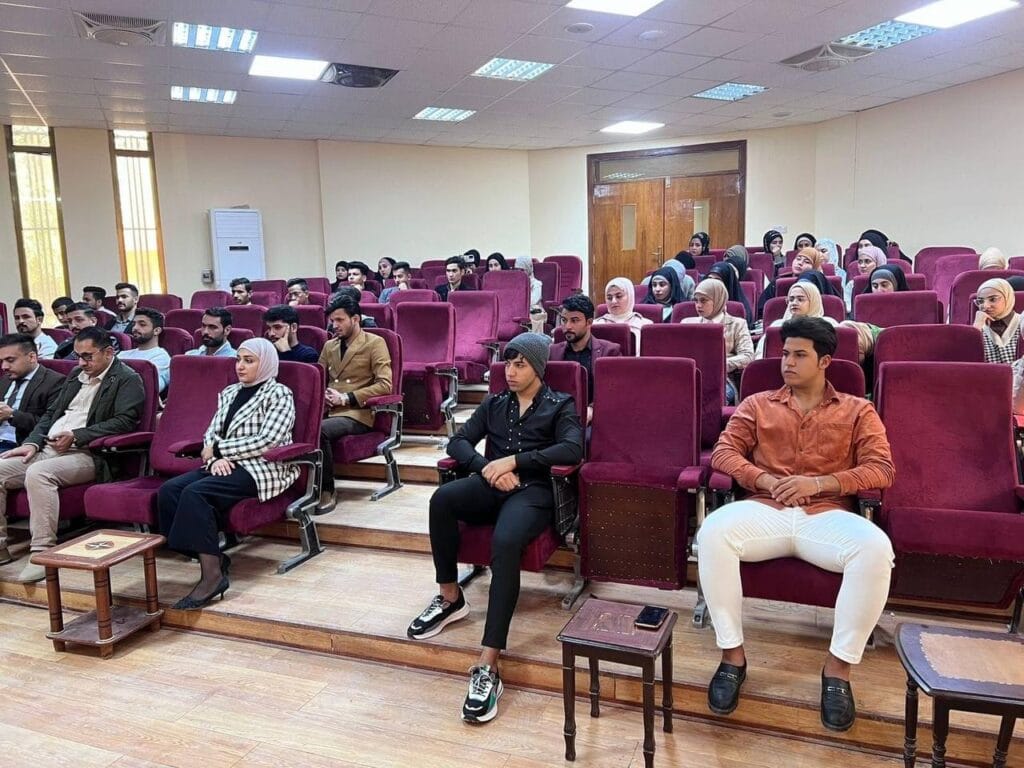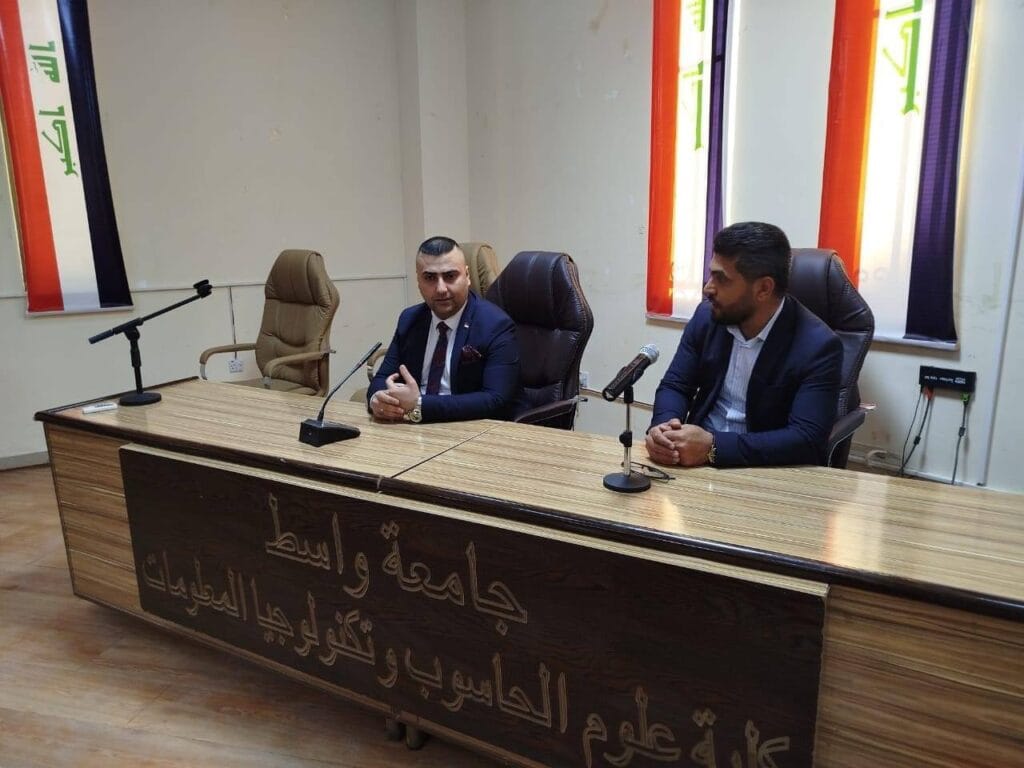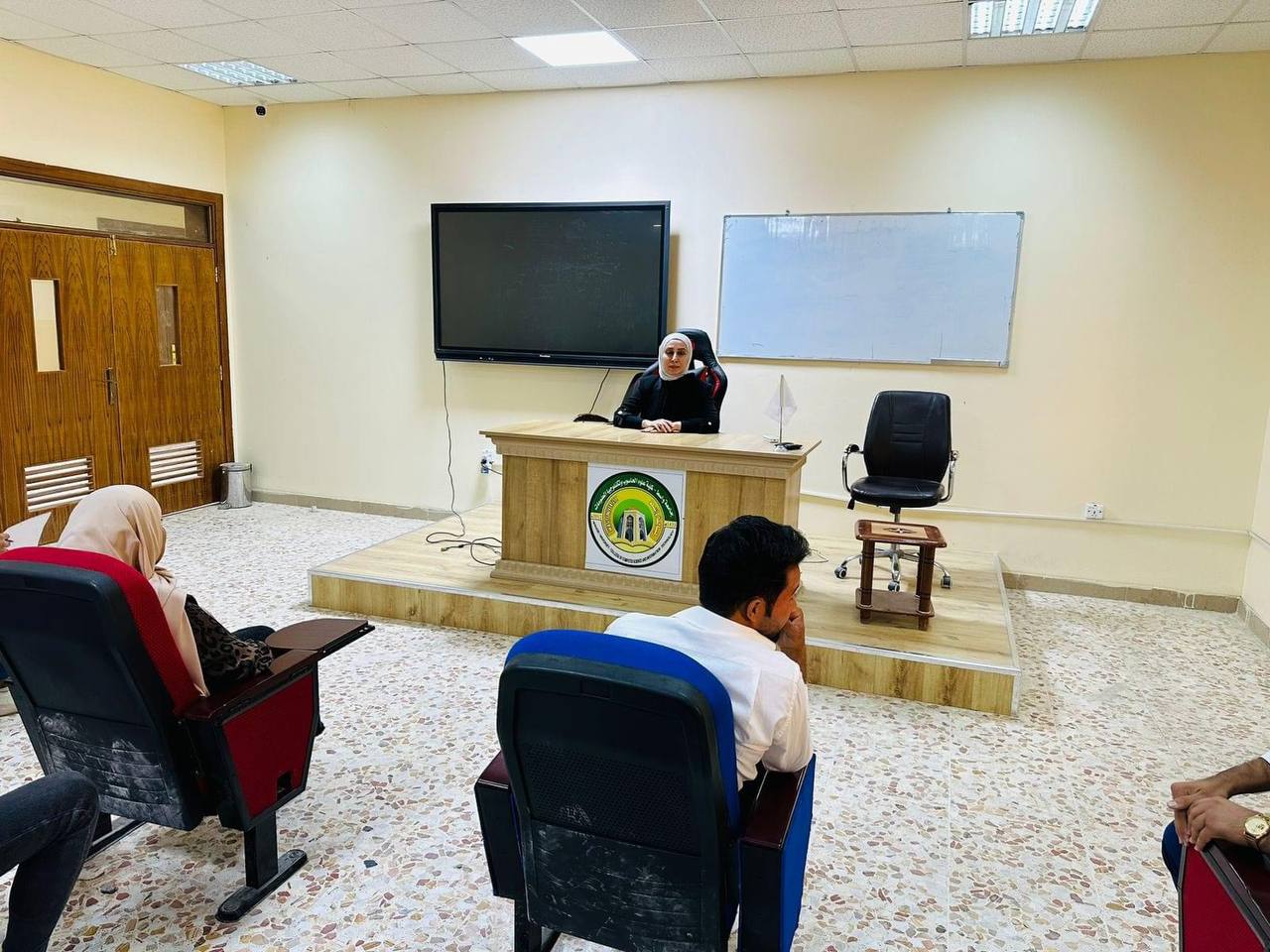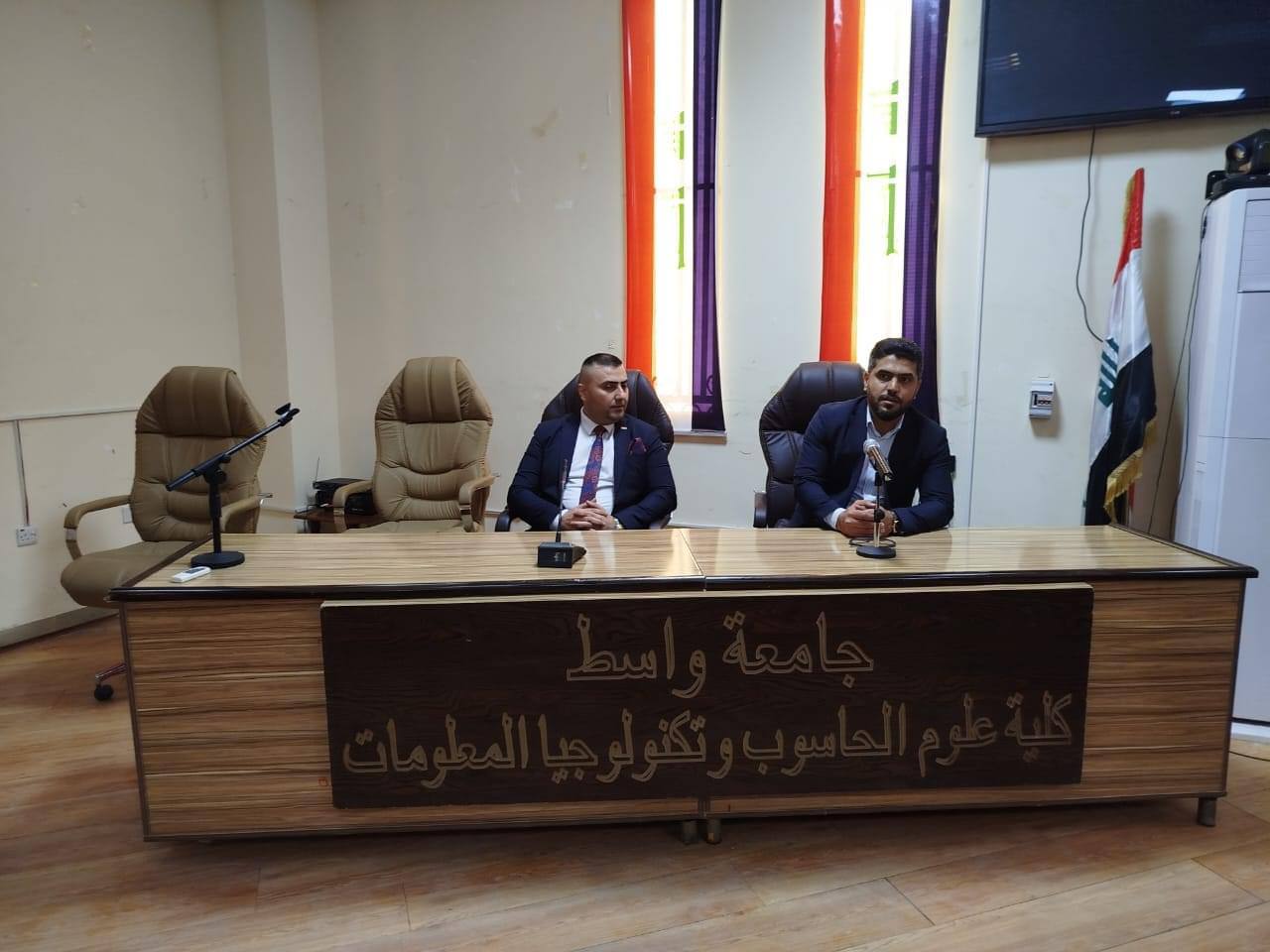
As part of Sustainability Week, the College of Computer Science and Information Technology at Wasit University organized a scientific seminar titled “Applications of Artificial Intelligence in Climate Change.”
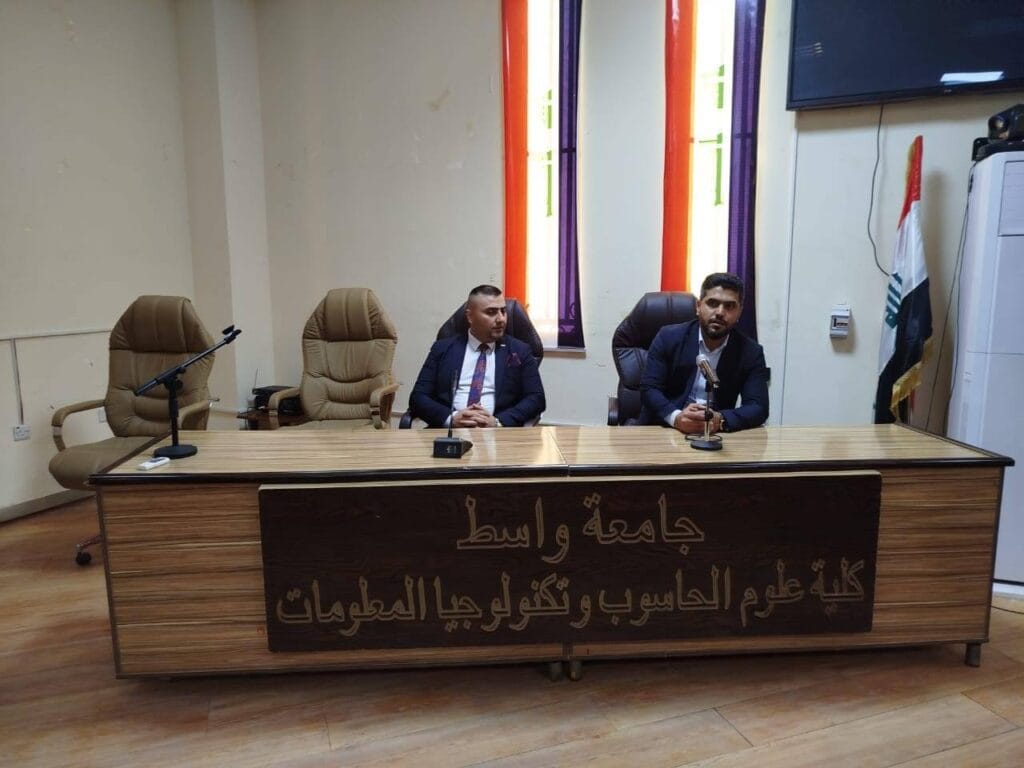
The seminar, presented by the college’s dean, Dr. Saif Ali Abdul Redha, and instructors Mr. Alyas Khudair and Mr. Mustafa Aziz, aimed to utilize technology, specifically artificial intelligence, as an innovative means to combat climate change challenges. The deployment of artificial intelligence in the field of climate change opens up new avenues for data analysis, weather forecasting, and the development of sustainable solutions. The seminar discussed one of the key applications of artificial intelligence in this field, which is analyzing big data related to climate and the environment, and using the results to guide policies and strategic decision-making. Additionally, artificial intelligence can be used to develop accurate prediction models for climate change and its long-term effects. The seminar also addressed the use of artificial intelligence in developing techniques to reduce carbon emissions, such as improving energy efficiency and waste management. Furthermore, artificial intelligence can be utilized in analyzing agricultural data to improve crop cultivation and water resource management more effectively. Ultimately, these applications demonstrate the efficiency of artificial intelligence technologies in supporting efforts to combat climate change and achieve a balance between economic development and environmental sustainability. However, these technologies require integration and comprehensive collaboration to achieve greater positive impacts in building a more sustainable future.
